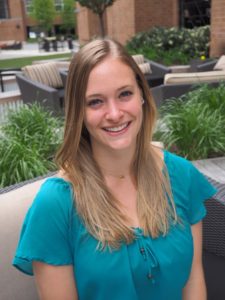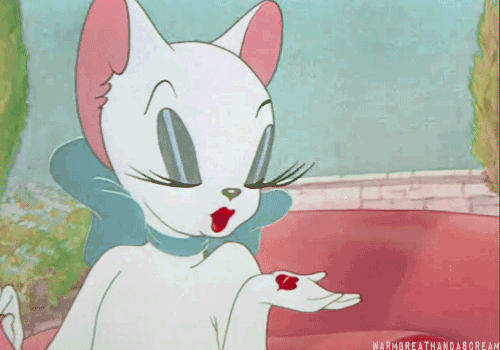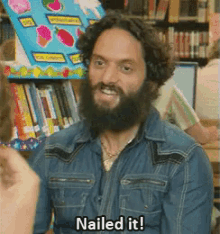Spine & Page is back from the dead! For its comeback post, we’re having a fireside chat with the lovely Amelia Appel, assistant literary agent at Triada US. Do you have burning questions you’ve always wanted to ask a literary agent but felt weird about? And everyone else conveniently ignores these questions in their Q&As? Luckily, I have no shame and I am willing to ask them for you! Also, Amelia is a friend of mine and I am forcing her to answer! Let’s begin 🙂


Ok seriously, why do you guys take so long to respond to queries? Are you ignoring me on purpose?
We’re not ignoring you, I promise! (And in the rare event that we are, it’s because you queried incorrectly – more on that later.) I can’t speak for every agent out there, but I’d argue that for most, queries tend to fall more towards the bottom of our to-do list. We spend a ton of time emailing, editing, on the phone, reviewing contracts, honing pitches, compiling submission lists, and reading for our clients. So with all that going on, reading queries is something we slip in where we can. And when you can get upwards of 50 queries in a single day, it takes a while to get through them all.
Everyone says not to write for trends, but then you guys turn around and say my decidedly off-trend manuscript isn’t marketable right now. WHAT IS UP WITH THAT? (AKA how do I balance writing what I’m excited about vs. what will sell?)
I firmly do not believe in writing for trends – by the time you think you’ve got a handle on it, it’s over. Always always ALWAYS write what you’re excited about – if you’re not excited about it, why would anyone else be? That comes through in your writing. Publishing is an extremely subjective business, but if you write something that you’re excited about and that your beta readers are excited about, you have a shot at getting an agent, then editor, then publisher excited. Not everything sells, but if you’re not writing what you love, you should reconsider why you’re doing it.
What’s the best way to win over an agent in a submission?
For a submission to win me over to where I ask for more pages, it all has to work – your query, synopsis, and first ten pages have to all be appealing to me. The trick that gets me to pay extra attention, though, is to start your query with personalized reasons why you think I’d like your manuscript and be the best agent for it. When queriers know and cite the specific reasons why they queried me in particular, it shows me that they’ve been paying attention, done their homework, and value the author/agent relationship enough to not send form letters out blindly. I notice that, and those queries are the most successful for me.
What’s the best way to get an agent to hate you?
Don’t follow directions. Be rude. Email me constantly after I already said I was reviewing and would get back to you when I was done. Hit on me. Butcher my name. Send me a query clearly meant for another agent. I’ll usually only ignore you, though, if you blatantly don’t follow my query guidelines; I don’t have time to tell you how to query properly, especially when the instructions are right on our website.
What’s the most important part of a submission – query, synopsis, or the sample chapters?
I might be alone in this, but they’re all equally important to me, which is why I ask for all of them in a submission. If you have a great pitch but your writing’s not there? Pass. Writing’s good but your story is all over the place? Pass. It all has to work for me.
What do you think is the most common reason an author might never get their manuscript taken on by an agent and/or published?
I think most near-misses happen because something’s missing. The best way to take care of that is to have beta readers and become a member of a writing group. You need that outside feedback to make your manuscript better, and it has to be great for an agent to want to work with you on it, and then it has to be excellent to get published. You can’t be shy with your manuscript before querying; it’s not to your benefit.
If I query an agent and they pass on my project, can I query them again with another one I think they’ll like better?
Absolutely! We encourage this. But send a separate query and mention that they’d passed on your other project; don’t just continue that thread.
If the tables were turned and you were submitting a manuscript to agents, what would be your approach to the process?
I’d do my research so I was sure to query only agents I thought would be a good fit (meaning they’re actively looking for the kind of project I’m querying), then I’d tailor each query to each agent by following their specific guidelines and including reasons for why I queried them in particular. Then I’d be patient, see what they said, and (as the case may be), revise accordingly.
I know it’s important to research agents and agencies before submitting. How extensive should this research be? Everyone else seems to know everyone and be best friends with agents on Twitter and I feel left out 🙁
You don’t have to completely stalk them (actually, please don’t), but a solid amount of research will help – review their profile on their company website, peruse their Twitter, familiarize yourself with their MSWL. That’s it. But don’t be afraid to engage with them on Twitter! Just use your best judgment on how to go about that.
How do I know if my manuscript counts as #OwnVoices?
The #OwnVoices hashtag was created as a way to identify books about diverse characters written by authors of that same diverse group. We Need Diverse Books has an excellent, detailed definition of what counts as #OwnVoices:
“We recognize all diverse experiences, including (but not limited to) LGBTQIA, Native, people of color, gender diversity, people with disabilities*, and ethnic, cultural, and religious minorities.
*We subscribe to a broad definition of disability, which includes but is not limited to physical, sensory, cognitive, intellectual, or developmental disabilities, chronic conditions, and mental illnesses (this may also include addiction). Furthermore, we subscribe to a social model of disability, which presents disability as created by barriers in the social environment, due to lack of equal access, stereotyping, and other forms of marginalization.”
If your manuscript aligns with this definition, you’re not appropriating anything, and you’ve gotten feedback from others to confirm, I’d say you can call it that.
What’s your ideal author/agent relationship?
One grounded in respect and transparency. There’s a lot of trust built between an agent and their client; everyone needs to be on the same page and both parties have to work hard for each other independently, otherwise it won’t work. I’ve found the most successful relationships are when clients trust their agents to do their jobs, and agents in turn trust their clients to do theirs.
What’s the most underrated piece of advice you wish more people looking to work in publishing took to heart?
Stick with it. This can be a really tough industry to break into for a plethora of reasons, and it can be frustrating at times. I’ve seen lots of people become disheartened and quit and wish they hadn’t. If you truly believe this industry is your calling, work hard and don’t give up. You’ll get there.
What’s one thing you think all literary agents have in common?
Apart from the obvious love of books, I’d say we’re all really passionate people. We want to be moved, and we have to love what we’re working on to work as hard for our clients and their projects as we do, because we can never guarantee a sale.
What are the three books I should read to understand what you’re looking for?
I want practically all of the things (check out the link below to see exactly what I’m looking for), so here are three books I love and why:
THE PROTECTOR OF THE SMALL QUARTET by Tamora Pierce
Okay, so this is actually four books instead of one, but this YA fantasy series is one of my all-time favorites for so many reasons. It’s fast-paced, the world-building is so top-notch that you’re unquestionably sucked in from the first page, and it highlights the trials and tribulations of not only being a female in a male-dominated field, but of growing up in a realistic way, albeit in a fantastic setting. The character arcs are believable and endearing, and while the protagonist develops romantic relationships, they are neither gratuitous nor the focus. I LOVE that Kel develops these strong relationships with the boys she grows up with, and that she’s single when the series closes.
LINCOLN IN THE BARDO by George Saunders
The format of this novel helps make it a quick read (once you figure it out), but the voices are what make it a page-turner. And I am an absolute sucker for stories that blend creepy elements with humor. Really, anything set in a graveyard will grab my interest. But the combination of the unique format, the hilarious characters, and the fascinating, historical fiction premise quickly brought this one into my top faves.
INFINITE JEST by David Foster Wallace
I’m willing to bet Shannon’s rolling her eyes over this one (Editor’s note: Yup.) because I hardly ever shut up about it, but I’ll argue I have excellent reason. I first read this in college for a “Study of the Novel” class, and my professor told us before we started that this book would change our lives. We all laughed at the time, and were no longer laughing by the time we finished. This book elicits an impressively broad range of emotions. I laughed, I cried, I cringed, and I was horribly frustrated to the point of wanting to punch someone, but by the time I was done, I felt like a different person. I love this book for how it makes me feel, how it makes me think, and how it makes me observe the world around me in a different light. It’s funny, for such a verbose novel (it’s over a thousand pages long and has hundreds of endnotes), my favorite parts of it were subtext. I love when a book makes me do some actual work to get the bigger picture. “Show, don’t tell” is great advice for writers, but when I have everything in front of me and still have to connect the dots on my own, that’s my favorite kind of writing.
Thanks for joining us! For more about Amelia, her interests, and how to query her, see guidelines here. Also, follow her on twitter @AmeliaLAppel.





















